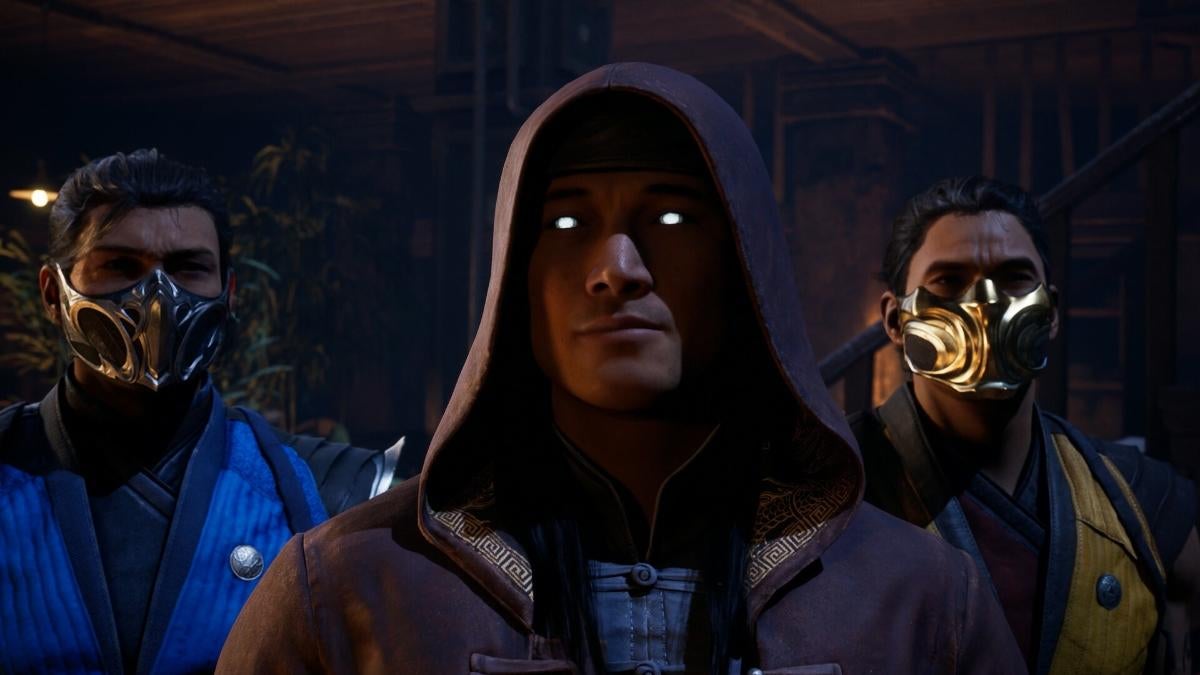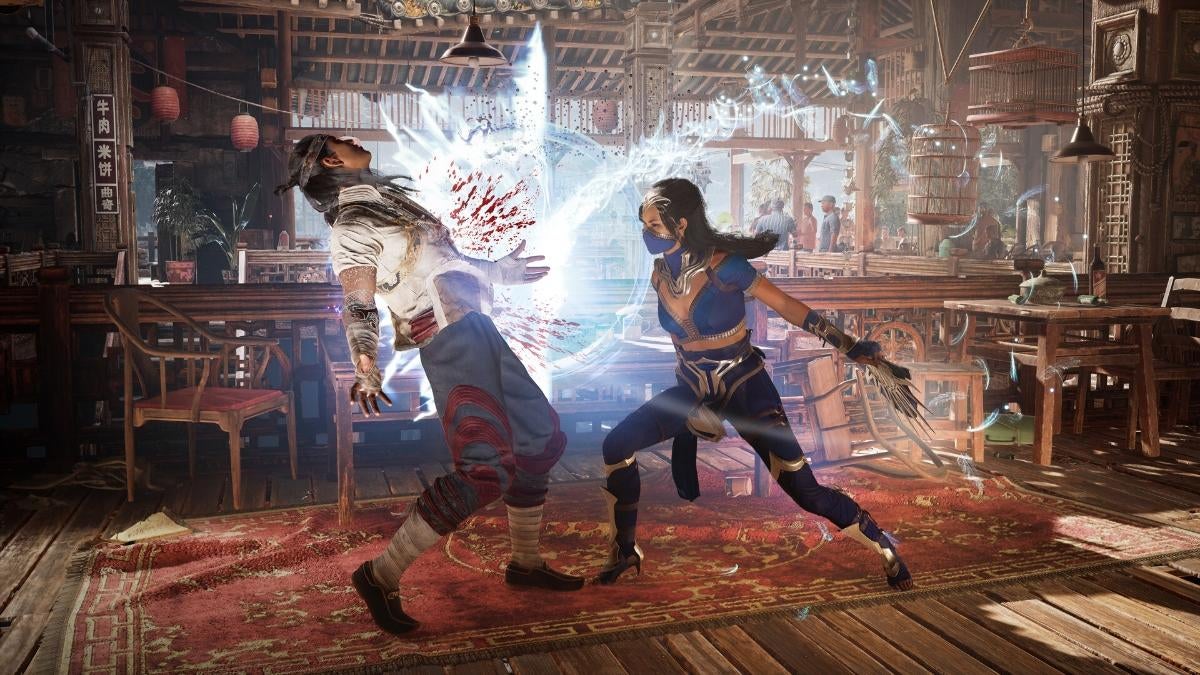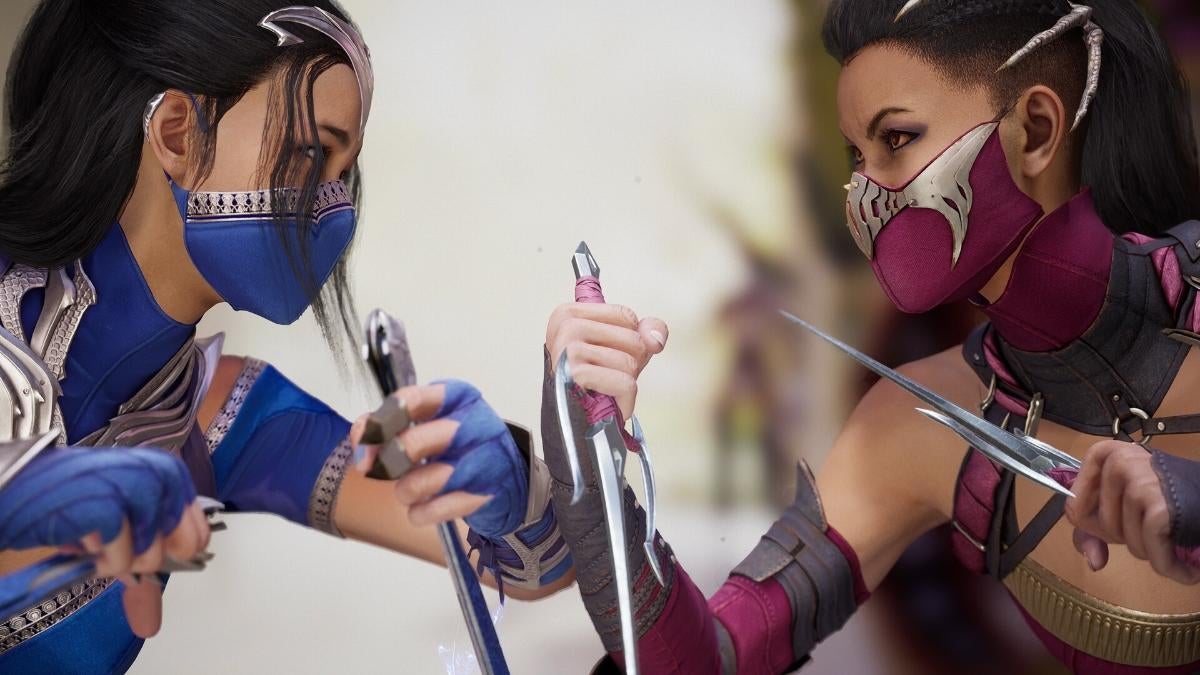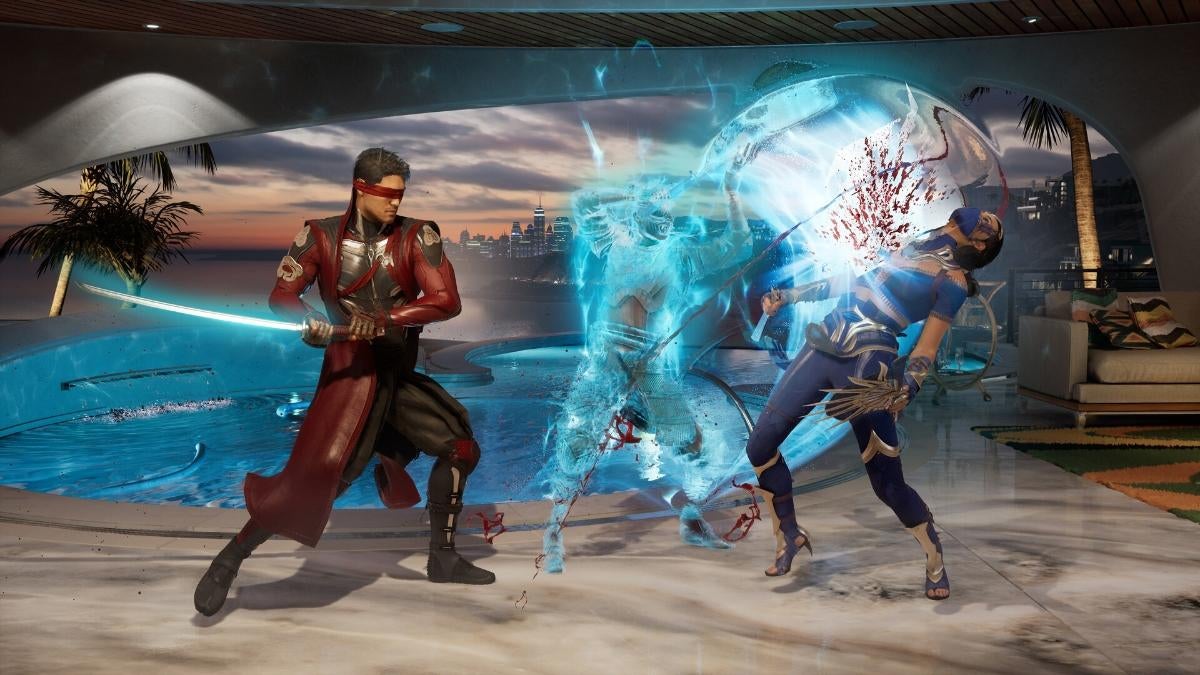Mortal Kombat 1 Review: It Has Begun Again...Again
Mortal Kombat 1 is yet another franchise reboot, but does it succeed with its new timeline? Read our review to find out!
Mortal Kombat is a franchise that's no stranger to reinvention, and in fact NetherRealm revived the franchise in massive way with a reboot in both idea and practice. Ever since Mortal Kombat (2011) reintroduced the bloody fighter to the modern era, the series has been finding ways to surprise fans more with each new entry. That title also introduced the idea of rebooting within its own story's timeline, and has since rebooted its own story a couple of more times since. Mortal Kombat 1 is yet another reboot following the events of Mortal Kombat 11: Aftermath, and it's the freshest take on Mortal Kombat overall that fans new and old will be able to experience.
Mortal Kombat 1 is not entirely starting from square one, however, as it's taken lessons from the way the older titles progressed and improved on them to make for one of the best fighters in the franchise yet. "Klassic" characters have been reinvented, fighting has been tuned up, and there's a cool new story at the center of it all that rewards fans who have been following closely since the 2011 entry without turning away new players. In many ways, Mortal Kombat 1 is the perfect title to jump in with if it's been a while since you've used a Fatality. In many others, it's also catering to those who dedicate themselves to sticking around for the long haul.
Mortal Kombat 1 starts over, but doesn't reinvent the wheel. NetherRealm has made sure to deliver the kinds of mainstay experiences fans of the recent Mortal Kombat titles have come to expect, and excels in these classic features. There's a cinematic story mode once again, and it's honestly the best the story has been in the series in a long time. Improvements in visual fidelity in both character and environment design make for an incredible cinematic experience. Lasting for a few hours and allowing new players to get a feel for much of the roster throughout, the story picks up from when Fire God Liu Kang took control of time and reset the timeline into a version of the universe he saw fit.

Liu Kang has since become the new protector of Earthrealm, and recruits champions to take on Outworld in a new tournament that's far different from the "Mortal Kombat" that he had experienced in his previous timelines. This results in brand new takes on all of the returning characters. Those potentially disappointed in the lack of brand new characters in the starting roster (bolstering an impressive spread of 22 playable fighters right from the jump) will appreciate that each of these returning characters feels fresh and new thanks to that rebooted timeline. The story has allowed NetherRealm to rework the roster with new tricks of the trade, and their new origins lead to more compelling characters overall.
For example the Tarkatans are no longer beings from another realm, but instead people of Outworld who suffer from the "Tarkat" disease. It's made characters like Baraka and Mileena not only more compelling in the story, but changes some of their tricks in the gameplay as well. Mileena now sprouts the same Tarkatan spikes from her wrists in some of her moves, and Baraka's combos feel steadier and more precise rather than the brutally wild swings he had before. Each character has changed in significant ways, but the core of their previous appearances and gameplay are still intact.
As for the way it plays itself, Mortal Kombat 1 is brutal as the franchise ever was. Attacks land hard, but dash speed and distance has been slowed a bit. This makes dealing with projectiles tough, but thankfully that's likely not going to be too much of an issue this time around like other NetherRealm titles. Mortal Kombat 1 is built with close quarters combat in mind. Combo strings are easier to pull off that ever before, and the timing for follow up button presses feels more forgiving than ever. It passes the button masher test where even someone with less experience can soon find themselves chaining together special moves with ease.

It's the kind of system that can be a bit unforgiving in more high octane play as you might find yourself on the receiving end on a very long, damaging combo, but it's a high-risk yet high-reward system where you could be dealing those combos as well. Thankfully there is a lengthy tutorial available that eases fans into the more intricate systems. The big difference for Mortal Kombat 1's fighting, however, is the addition of Kameo Fighters. Mortal Kombat 11 had this Konsumable system where you could temporarily call out an ally for a quick attack to help, and the Kameo Fighters seem to be an evolved version of this idea.
Along with picking your character, you'll need to choose a Kameo Fighter (who each come with their own Fatalities and unlockable palette swaps) to fight by your side but it's not like a tagging system where you control both. Working under a special meter, pressing the trigger (R1 in the PlayStation 5's case) calls out your Kameo to assist you with a move. There are varied button presses to change up a particular assist, and the other player can even interrupt their attack by hitting them before they complete their chosen attack. Kameos open up fighting to all sorts of possibilities, and this will be where a ton of the fun from now on will be.
Players will want to experiment with as many combinations as they can get their hands on, and when combining with the easier combos to pull off, the Kameos are the funnest introduction to the franchise in some time. Everything's been streamlined to focus on the pugilistic gameplay, so there are no interactibles to throw either. There's also a wealth of customization and unlockable elements to strive for as well. Gear is all cosmetic (as of this writing), and unlocks at random intervals when playing each mode but focusing on a particular fighter will help you unlock their various goodies faster.

Simply playing the game will unlock things as there's an overall Profile Mastery to level up which leads to new elements such as more Kameo Fighters (who can also unlock their own additional colors the more you use them and increase Mastery), gear and more. Then there's a specific Mastery for each character that will then unlock more palettes, Brutalities, and more gameplay specific additions. It feels less random than it has been in the past, and thankfully carries through to no matter what mode you decide to play. And there are quite a few.
Along with the Klassic Towers (which is the standard arcade mode), online offerings that include Ranked and Kasual (which will really be put to the test over the coming weeks), the main draw for single players outside of the story is the new Invasions mode. Unlike the random Challenge Towers in the past (and replacing The Krypt seen in previous titles), Invasions is a fully expanded, role-playing game kind of experience. Refreshing every 50 days or so for each seasonal offering, Invasions features its own story and tasks players with moving across a board game kind of set up. Advancing through the areas (known as Mesas) tasks players with taking on various fights.
The switch up here, however, is that you are free to select any character at any time. Characters have certain elemental traits that can deal more damage to others, or take more damage from them. Winning fights levels up your overall Invasions level (which levels up every character at the same time), and earn skill points to buff up for more additional health, attack, and more. The chaos of fights seen in past Challenge Towers is here in full too, so each fight will vary. There is quite a grind, however, as each Mesa seems to rotate the same few fighters. This grind feeling kicks in even harder when you unlock the same kind of Secret Fights throughout too.

At one point in Invasions I was trying to work through a four fight arcade ladder (which featured the same four fighters I had been clearing out through the rest of this particular Mesa), and it unlocked a Secret Fight against the same Havik each time. So the seemingly four fight task quickly turned into seven fight task where I fought the same characters over and over. While the grind will be lasting for longer in this mode than in previous titles (as dedicated players could pretty much grind the Krypt relatively quickly), the prolonged experience isn't always better.
Mortal Kombat 1 is a fun start to an exciting new era for the long running franchise. There are some sticking points that will likely need to be ironed out in future entries, however. The combo heavy fighting style is very satisfying to play when you're dishing it out, but will definitely make it less appealing to newcomers who could be on the receiving end. Invasions mode is great for playing alone, but that grind feeling will likely sink in sooner rather than later. Kameo Fighters are a fantastic addition, but customization for them isn't as deep yet.
With all of that being said, Mortal Kombat 1 is still very much a bloody and brutal good time with tons of rewards for digging deep into it.
Rating: 4 out of 5
Mortal Kombat 1 is now available on Early Access for those who have the Premium or Kollector's Edition, and releases on September 19th for those with the Standard Edition on Nintendo Switch, PlayStation 5, Windows PC, and Xbox Series X/S. A review copy of the game was provided by the publisher for the purpose of this review, and was reviewed on PlayStation 5.
0comments